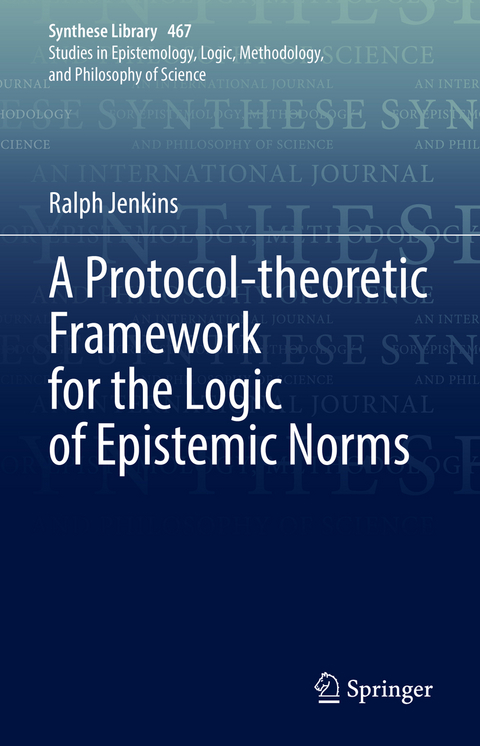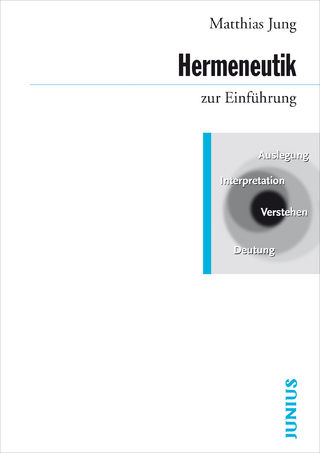
A Protocol-theoretic Framework for the Logic of Epistemic Norms
Springer International Publishing (Verlag)
978-3-031-08596-3 (ISBN)
This book defines a logical system called the Protocol-theoretic Logic of Epistemic Norms (PLEN), it develops PLEN into a formal framework for representing and reasoning about epistemic norms, and it shows that PLEN is theoretically interesting and useful with regard to the aims of such a framework. In order to motivate the project, the author defends an account of epistemic norms called epistemic proceduralism. The core of this view is the idea that, in virtue of their indispensable, regulative role in cognitive life, epistemic norms are closely intertwined with procedural rules that restrict epistemic actions, procedures, and processes. The resulting organizing principle of the book is that epistemic norms are protocols for epistemic planning and control.
The core of the book is developing PLEN, which is essentially a novel variant of propositional dynamic logic (PDL) distinguished by more or less elaborate revisions of PDL's syntax and semantics. The syntax encodes the procedural content of epistemic norms by means of the well-known protocol or program constructions of dynamic and epistemic logics. It then provides a novel language of operators on protocols, including a range of unique protocol equivalence relations, syntactic operations on protocols, and various procedural relations among protocols in addition to the standard dynamic (modal) operators of PDL. The semantics of the system then interprets protocol expressions and expressions embedding protocols over a class of directed multigraph-like structures rather than the standard labeled transition systems or modal frames. The intent of the system is to better represent epistemic dynamics, build a logic of protocols atop it, and then show that the resulting logic of protocols is useful as a logical framework for epistemic norms. The resulting theory of epistemic norms centers on notions of norm equivalence derived from theories of process equivalence familiar from the study of dynamic and modal logics. The canonical account of protocol equivalence in PLEN turns out to possess a number of interesting formal features, including satisfaction of important conditions on hyperintensional equivalence, a matter of recently recognized importance in the logic of norms, generally.
To show that the system is interesting and useful as a framework for representing and reasoning about epistemic norms, the author applies the logical system to the analysis of epistemic deontic operators, and, partly on the basis of this, establishes representation theorems linking protocols to the action-guiding content of epistemic norms. The protocol-theoretic logic of epistemic norms is then shown to almost immediately validate the main principles of epistemic proceduralism.
Ralph Jenkins earned a Ph.D in Philosophy from the CUNY Graduate Center in 2018. His primary research interests are logic and epistemic methodology (e.g., belief revision). His main focus is applying dynamic logic to the analysis of epistemic norms.
Part I. Epistemic Proceduralism. Chapter 1. Epistemic Proceduralism Stated.- Chapter 2. Epistemic Proceduralism Defended I.- Chapter 3. Epistemic Proceduralism Defended II.- Part II. Developing PLEN. Chapter 4. PLEN: A Protocol-theoretic Logic of Epistemic Norms.- Chapter 5. The Revised PLEN Framework I: Protocol Equivalence (Useful Lemmata).- Chapter 6. The Revised PLEN Framework II: Protocol Equivalence (Core Results).- Chapter 7. The Revised PLEN Framework III: An Adaptable Protocol Logic.- Part III. Applying PLEN. Chapter 8. Philosophical Results I: A Protocol-theoretic Logic of Epistemic Deontics, Procedural Knowledge, and Norm Application.- Chapter 9. Philosophical Results II: Representation Theorems and Rule-Following.- Chapter 10. Philosophical Results III: Formalizing Epistemic Proceduralism.
| Erscheinungsdatum | 28.09.2022 |
|---|---|
| Reihe/Serie | Synthese Library |
| Zusatzinfo | XXI, 526 p. 1 illus. |
| Verlagsort | Cham |
| Sprache | englisch |
| Maße | 155 x 235 mm |
| Gewicht | 979 g |
| Themenwelt | Geisteswissenschaften ► Philosophie ► Allgemeines / Lexika |
| Geisteswissenschaften ► Philosophie ► Erkenntnistheorie / Wissenschaftstheorie | |
| Geisteswissenschaften ► Philosophie ► Logik | |
| Mathematik / Informatik ► Mathematik ► Allgemeines / Lexika | |
| Schlagworte | Derivation Philosophy • dynamic epistemic logic • Dynamic Logic Epistemology • epistemic dynamics • epistemic logic • Epistemic Norms • Formal epistemology • Logic Norms • Logic Protocol • PLEN logic • PLEN Philosophy • Protocol Graphs Philosophy • Protocol theoretic Logic Epistemic Norms • Restrictions Epistemic Procedures • Restrictions on Epistemic Processes • Rival Formalisms |
| ISBN-10 | 3-031-08596-5 / 3031085965 |
| ISBN-13 | 978-3-031-08596-3 / 9783031085963 |
| Zustand | Neuware |
| Informationen gemäß Produktsicherheitsverordnung (GPSR) | |
| Haben Sie eine Frage zum Produkt? |
aus dem Bereich


